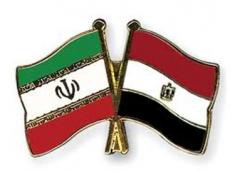Egypt's tourism minister, Hisham Zaazou, has spoken about the ongoing rapprochement between Egypt and Iran, describing the deepening of relations between the two states as aimed at promoting tourism, and not political" or "religious. Al Ahramonline reported"
A recent visit by Iranian President Ahmadinejad to Cairo in February was considered by many observers to be a groundbreaking step in relations between Egypt, a majority Sunni nation, and the Shia state of Iran.
Promoting Iranian tourism in Egypt is not part of an Iranian "Shia-ization" scheme for the Middle East, and will not undermine Sunni values or dogmas, said Zaazou in an interview with Ahram's Arabic website.
Egypt and Iran signed a memorandum of understanding (MoU) on Wednesday, promoting cooperation between the two countries in the tourism sector, in a development that was seen as unprecedented.
"We were keen to protect Egypt's national security and sovereignty during the negotiations, and all security risks were taken into consideration before signing the agreement," said Zaazou.
Tourism between the two countries has been almost non-existent since all bilateral relations were severed following Iran's 1979 Islamic revolution.
The Fatimid area of Cairo holds religious sites and the graveyards of important Shia figures that could be a potential point of interest for Iranian tourists.
Ahmadinejad shed tears during a visit to the Sayyeda Zeinab Mosque in Old Cairo last month. Several Salafist groups held angry demonstrations, protesting the visit. .
"Iran has normal relations and diplomatic missions with a lot of countries in the world except for the United States and Israel," said Zaazou, dismissing reports that rapprochement with Iran presents a security risk to Egypt.
Almost 10 million Iranian tourists visit Gulf countries and Europe each year, and Egypt should start benefiting from this significant flow of tourists, the minister of tourism said.
"Turkey alone receives almost 2 million Iranian tourists annually, and this is not
Ahmadinejad's visit to the Cairo was met by widespread discontent by some ultra-conservative groups that perceived the growing relations between the two countries as an "attack" on the Sunni sect.
The "Coalition of Muslims for the Defence of the Prophet's Companions and Family" has called for a million-man march on 15 March to protest what they called "normalisation with the Iranian entity."
In a press statement, the coalition demanded President Morsi re-freeze relations with Iran, as they could threaten Egypt's national sovereignty and spread the Shia sect in the predominantly Sunni country.









